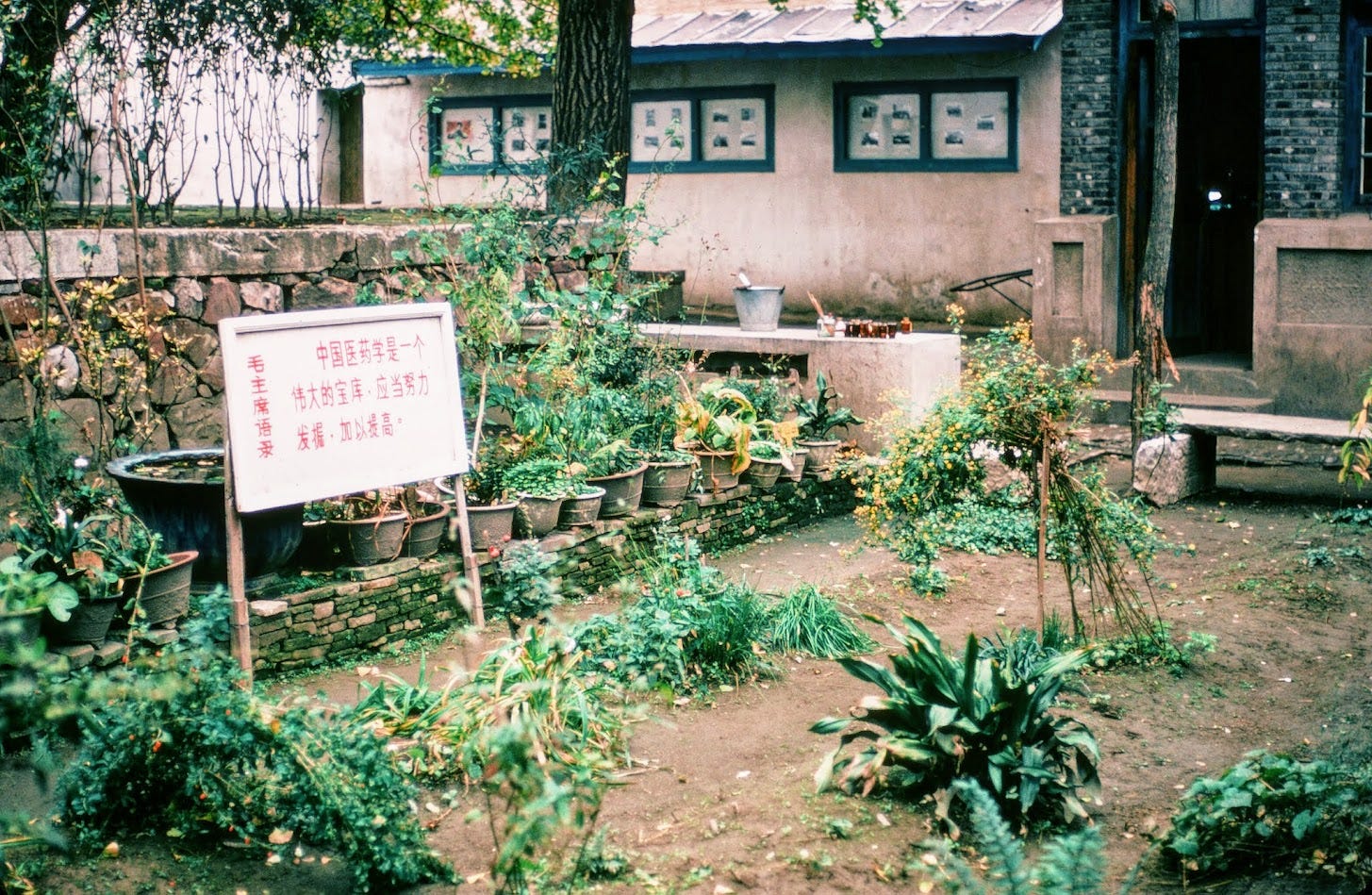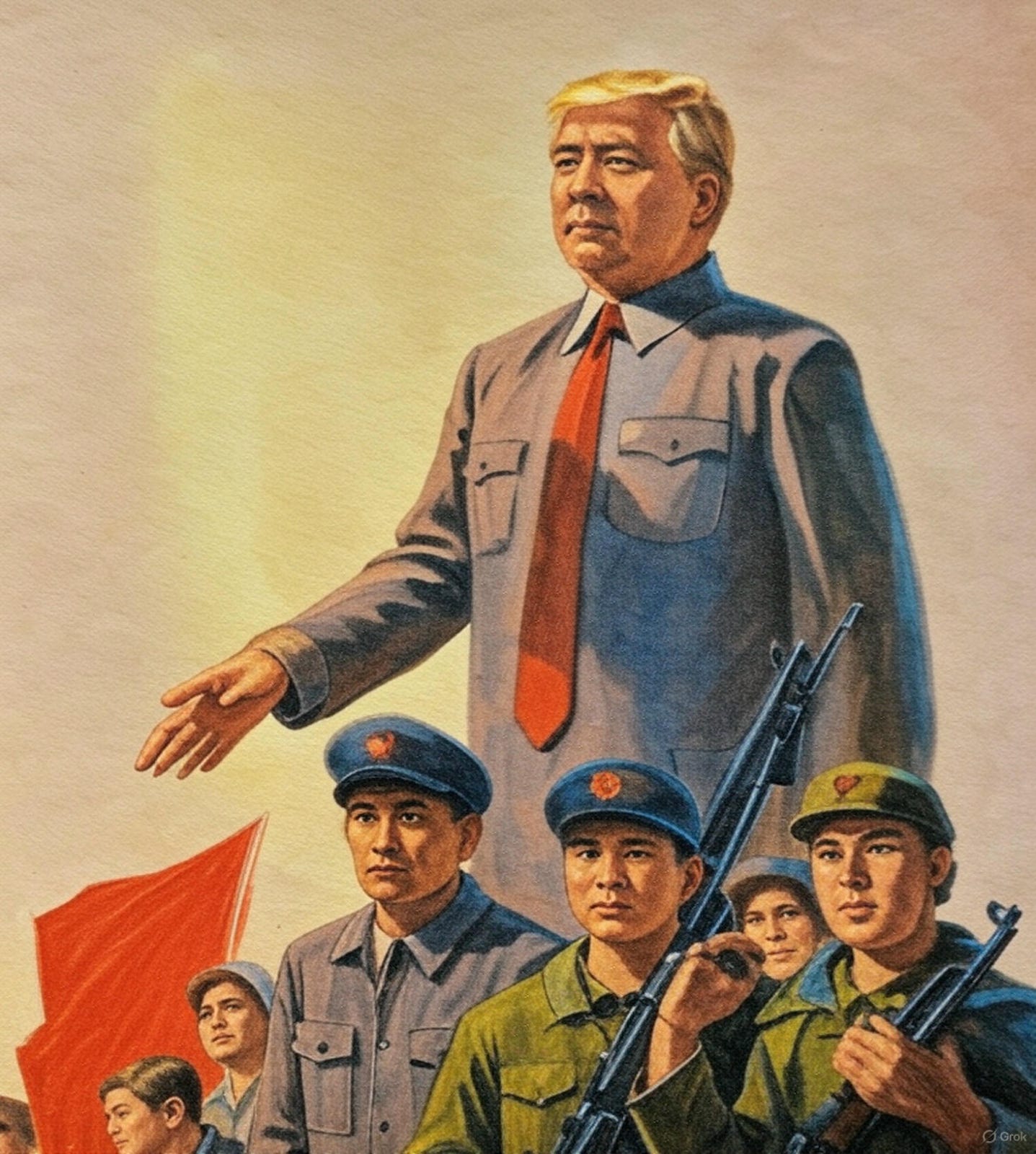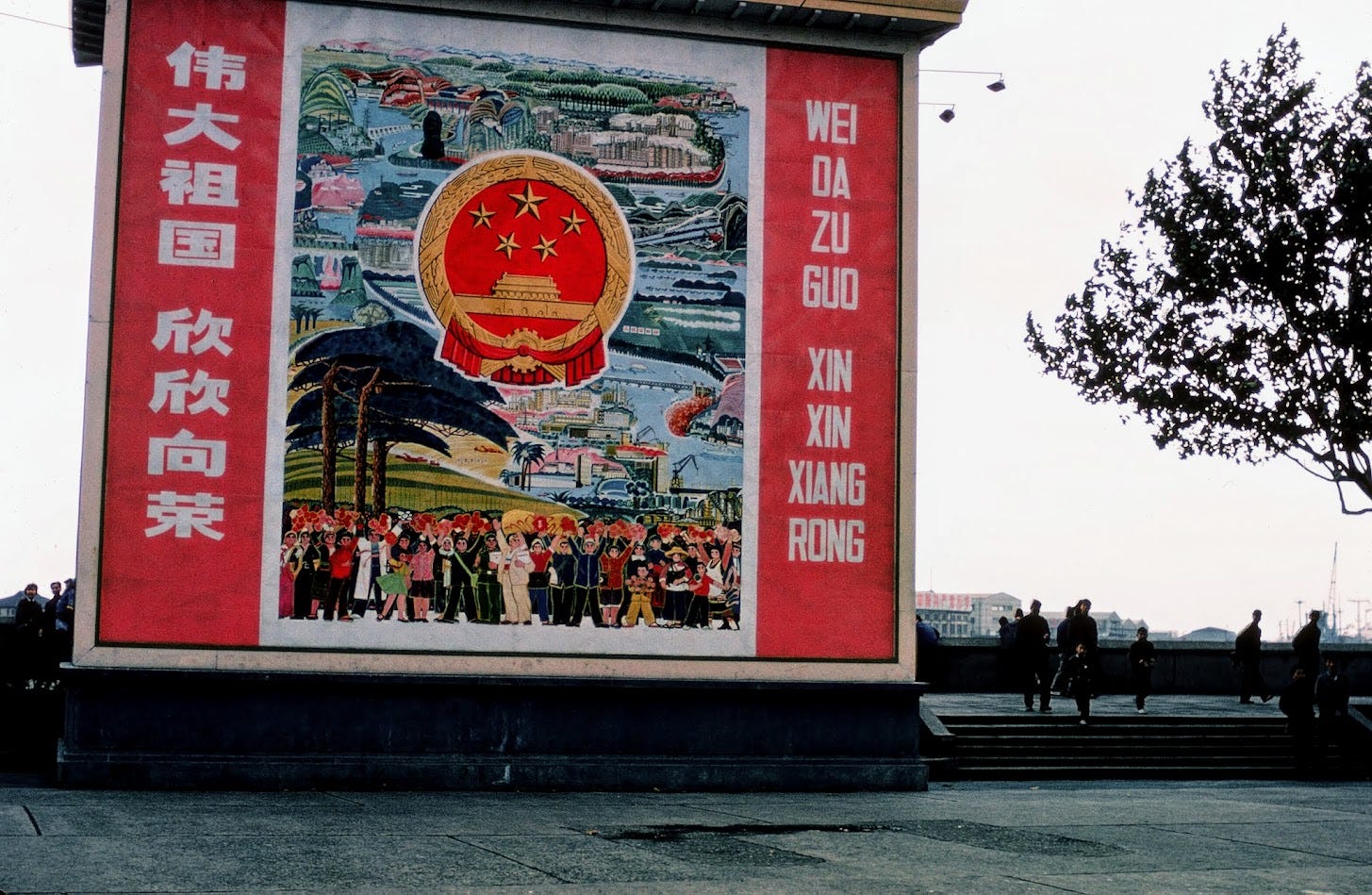Culture emerges socially. Nobody directs the evolution of art, science, media, language, religion, or fashion, even if many wish to influence it. In contrast, cultural revolutions are centrally initiated broad-spectrum political attacks on the existing order. They are partisan, frenzied, and dangerous. Cultural revolution is the opposite of culture.
China’s Cultural Revolution: 1966-1976
A half-century ago, I traveled to China to spend three weeks witnessing the final stages of the Great Proletarian Cultural Revolution. Although state authorities escorted us everywhere, we saw a country that was visibly traumatized. People struggled to explain how China had spent years destroying the foundations of its society, family, state bureaucracy, and national culture.
These things needed changing, but the Cultural Revolution was a massive shit show from the outset. Beginning in 1966, Mao Zedong mobilized ten million students to travel the land as paramilitary Red Guards, shuttering universities, hospitals, and factories, attacking family structures, and forcing anyone suspected of revisionism into re-education camps. At least a half million people perished as a direct result.
The madness ended only when Mao died in 1976. China’s cultural revolution is remembered today as a decade-long psychotic episode that scarred the country for a generation. It left the country indescribably poor. China’s largest city, Shanghai, had one functioning traffic light when I visited. Pudong, now filled with skyscrapers, was a silent marshland.
Trump’s cultural revolution
Donald Trump is treating America to a cultural revolution. His efforts to “Make America Great Again” have unleashed social, political, and economic earthquakes that have shaken America’s foundations. To be sure, Trump is no Mao Zedong.1 Elon Musk’s rampaging DOGE kids are nothing like the fanatical Red Guards. However, Trump and Mao share an approach to cultural revolution.
Attack cultural institutions. Trump is an instinctive culture warrior. He has just begun to attack universities, the federal bureaucracy, scientific research, the press, law firms, and the arts. Four years of this, backed when necessary by the devoted MAGA fanatics who gave us January 6, will shatter historical American norms. Trump’s cultural revolution goes far beyond naming himself the Chair of the Kennedy Center (which we can expect him to rename).2 Like Trump, Mao encouraged chaos to destabilize his rivals and assert control over his party. He urged the Red Guard to burn books, destroy temples, artifacts, and cultural relics, rename streets, and reject all sources of authority except his own.
Light the fuse. Like Mao, Trump is improvising, not orchestrating. He sets political and ideological objectives without a clear plan for how things will unfold. His tariffs do not result from a mind or an administration that thinks through second and third-order consequences. Historians like Roderick MacFahrquhar and Michael Schoenhals concluded that Mao lit the fuse but could not control the explosion.
Ideology-driven. Finally, like Mao, Trump is profoundly ideological but operationally careless. He surrounds himself with loyal enablers, not people with technical competence. They reinforce his tendency to initiate political earthquakes with aftershocks that are more intense – and more destructive – than he expected.
In fewer than one hundred days, Trump has shattered the trust of friends and allies and forfeited America’s standing as a beacon of freedom, hope, and individual liberty. He is rapidly degrading America’s ability to attract and retain talent. America’s trusted, imperfect national reputation took decades to build but mere days to destroy. MAGA mobs are not yet shutting down universities and “speaking bitterness” at intellectuals and leaders of all institutions – but Trump has only been in office for 75 days. He has used this time to reduce the power of three core American assets.
Our Constitution. Starting with his attempt to overthrow the 2020 election, Trump has led an assault on the constitutional separation of powers and assumed for himself powers never imagined by previous presidents. In his first ten weeks, he pardoned those convicted of January 6 crimes, neutered Congress with more than 300 executive orders, threatened universities and law firms that have criticized him, and declared a phony national emergency to grab people off the street and ship them to Salvadoran dungeons without due process. Even as he acknowledges that some of those arrested were innocent, he has begun to speak of a third presidential term.
Our global standing. Trump has crippled the NATO alliance that has prevented world war for eight decades. He has canceled soft power initiatives like PEPFAR that save countless lives, maintain US prestige, and stand with struggling people worldwide. Trump has embraced Vladimir Putin and kneecapped Ukraine. He proposes to take over Greenland, Panama, Gaza, and, astonishingly, Canada.
Our trading partners. Americans have long debated what constitutes “free,” “fair,” or “strategic” trade. However, since tariffs became closely associated with the Great Depression of the 1930s and especially since World War II, the United States has been the architect of a global trading system that has produced unprecedented prosperity. Trump ended that with tariffs on our closest friends and trading partners. He imposed higher tariffs this week than any since the early 1930s. Trump even destroyed the USMCA trade deals, which he proudly bargained with Canada and Mexico during his first term.
Economics and politics are downstream from culture
Beginning in the late nineteenth century, political thinkers tried to understand the relationship between culture, economics, and politics. Writing from a fascist prison cell in Italy, Antonio Gramsci argued that culture is not just a reflection of economic conditions — it is strategic terrain where power is won or lost. He believed that the media, educational systems, religion, and language are places where cultural consent emerges or is imposed. A Marxist, Gramsci rejected Leninist tactics, arguing instead for a “war of position” to shift cultural hegemony and build alternative institutions.3
Today, many people who have never heard of Antonio Gramsci believe that politics and economics operate downstream from culture. They think that in capitalist democracies, political battles are won and lost not in the streets but in the schools, the media, and the church — which have all moved online. Politics and, to some extent, economics will become culture wars because that’s where political power is won and lost.
Trump’s presidency has 1,385 days left. Those (including me) who hoped that bond and equity markets would temper his determination to upend the American order need to consider the possibility that, like Mao, Trump is prepared to inflict and endure a great deal of pain in the service of his ideology. His cultural revolution may be just getting started.

CODA
Here we go again.
Unlike Mao, Trump’s actions affect the rest of the world. During the sixties, the world ignored Mao, much as we ignore North Korea today.
Ironically, China’s Cultural Revolution has been excellent for Chinese culture – at least the part that gets translated and exported. It has produced outstanding novels, plays, music, and historical research.
We can thank Notre Dame scholar Joseph Buttigieg for translating Gramsci’s Prison Notebooks into English. He is Pete Buttigieg’s father.




